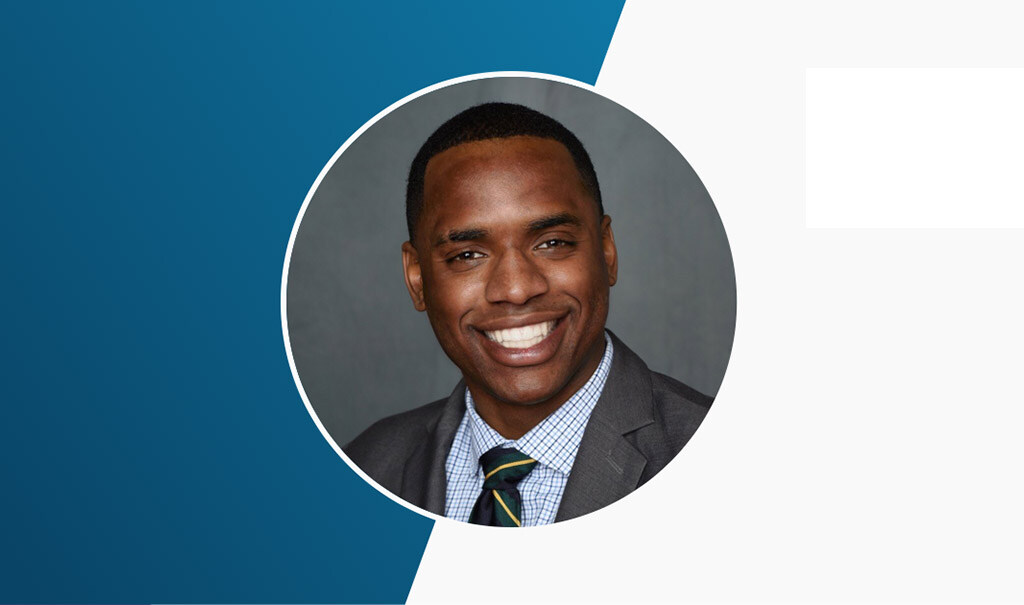
March 14, 2018
USI's Topher Bates on cost shifting and benefits innovation

Sophia Lee
Sophia is on the communications team at Amino, where she helps share industry perspectives.
"I wish everyone recognized that employee benefits are a vital part of the American dream."
Topher is a Vice President at USI Insurance Services, where he specializes in designing innovative solutions for his clients. In addition to his role at the firm, Topher is an active thought leader in the benefits space, sharing weekly insights about the industry in his #TopherTuesday series on LinkedIn.
In this Q&A, we hear Topher’s explanation of the difference between cost shifting and cost containment, and how he plans to contribute to the diversification of the future insurance workforce.
Can you tell us more about your company and role?
USI is a privately held, full encompassing, insurance brokerage and consulting firm. My responsibility is to work closely with C-level executives at middle market organizations, specifically helping them cut healthcare costs while improving their employee benefits program.
What’s one thing you wish everyone knew about your job?
I wish everyone recognized that employee benefits are a vital part of the American dream and often are an organization’s second largest expense. Even so, access to affordable and quality healthcare remains a challenge nationwide.
Learning how to be a better consumer of healthcare and insurance can have a direct impact on your mind, body, business and pocket book. At the end of the day, health = wealth. It’s important to ask your employer or insurance broker what resources are available for your continued education.
What recent news or trend has you most excited about the healthcare benefits space, and why?
According to the U.S. Bureau of Labor Statistics, over 400,000 people (15% of the workforce) are expected to retire from the insurance industry by 2025. Further research indicates that less than 4% of millennials are attracted to careers in insurance.
While succession planning presents a tremendous challenge for industry leaders, I believe it creates a wonderful opening for the marketplace to embrace diversity and encourage innovation. I look forward to training and developing diverse future leaders that will prioritize transparency and promote technology when solving complex problems for customers.
I look forward to training and developing diverse future leaders that will prioritize transparency and promote technology when solving complex problems for customers.
Further, with the rapid rate of advancements in medicine, the national pharmacy spend crisis is one area of focus that especially needs change as we plan for the future of healthcare and benefits.
What’s a common "myth" in the healthcare benefits space that you'd like to debunk?
Many employers believe that rates provided at renewal time determine the value of their broker partnership. In actuality, evaluating the effectiveness of a broker/consultant should not be limited to a one-time annual event or transaction.
Although health insurance is not considered a “sexy” topic of discussion, medical debt is the number one reason Americans file for bankruptcy. Any organization offering employee benefits should annually uncover what they’re paying for and how it impacts their employees. While keeping insurance on auto-pilot is easy and perceivably prevents disruption, I challenge employers to prioritize a financially transparent, ongoing relationship with their broker/consultant.
A lot of people seem to confuse “cost reduction” with “cost shifting.” Can you clarify the difference for our readers?
Cost reduction is the result of finding efficiencies in a health insurance plan that produces organizational savings on annual spend. Contrarily, cost shifting is the practice of the changing employer vs. employee contributions in the health insurance plan. In theory, some leaders believe shifting costs or spreading financial responsibility encourages employees to make different choices that result in lower costs. However, cost shifting does not necessarily produce cost reduction; and cost reduction can occur without shifting costs.
Connect with our Partnership Team
Want to learn how we can help your members transform their healthcare experience in 2025?